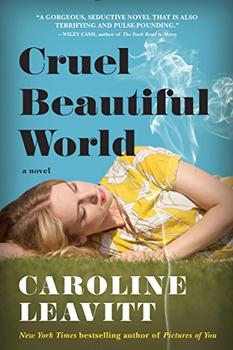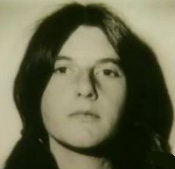Summary | Excerpt | Reading Guide | Discuss | Reviews | Beyond the Book | Read-Alikes | Genres & Themes | Author Bio

Critics' Opinion:
Readers' Opinion:
First Published:
Oct 2016, 352 pages
Paperback:
Aug 2017, 384 pages
 Book Reviewed by:
Book Reviewed by:
BookBrowse First Impression Reviewers
Buy This Book
This article relates to Cruel Beautiful World
Cruel Beautiful World is set in the early '70s against the specter of the Manson girls.
The horrific story of Charles Manson, the cult leader who believed he was the Messiah and who then orchestrated murders in Los Angeles to spark a race war, is fairly well-known at least in American culture.
More recently, his "girls," women attracted to his cause and who believed he was Jesus Christ, have enjoyed renewed attention in the spotlight thanks to a series of documentaries and novels about them. These girls, barely out of their teens, were recruited by Manson as part of his "family" and were active members of the bizarre cult he founded.
Among the girls is Leslie Van Houten, now 66 and serving time in a California prison, who was an accomplice to murder at the behest of Charles Manson. Introduced to him by a boyfriend, she was one of many who saw Manson as Jesus Christ.
Susan Atkins, an avid believer in the Manson "doctrine" was the one who lead the killing on actress Sharon Tate, one of the seven killings that Manson orchestrated in southern California. Atkins became more religious in prison and developed brain cancer while there. Her petition for parole was rejected and she died in jail at 61.
 Then there's Patricia Krenwinkel who was a secretary when she met Charles Manson and immediately became a part of the "family." She was just 19 when she was found guilty of seven counts of murder. Krenwinkel, Atkins and Van Houten all expressed regret for their crimes and encouraged people not to view Manson as a hero, as they had done when young.
Then there's Patricia Krenwinkel who was a secretary when she met Charles Manson and immediately became a part of the "family." She was just 19 when she was found guilty of seven counts of murder. Krenwinkel, Atkins and Van Houten all expressed regret for their crimes and encouraged people not to view Manson as a hero, as they had done when young.
Krenwinkel's interview from prison is particularly worth watching as an exercise in remorse and the struggles of reconciling life after such a horrific past.
These women were just a few of the many Manson girls and it has been argued in novels that they willingly joined because Manson showed them a way to belong to a community and a future that they wanted to believe in. "When you feel like your life has to have an eventual destination, are you more likely to follow someone who offers a path?" asks Julie Beck in an insightful article for The Atlantic. "Desire, when you haven't been loved yet—romantically, anyway—is mostly about imagination. This makes idols easy to love, and loves easy to idealize."
Picture of Patricia Krenwinkel from Wikipedia.org
Filed under People, Eras & Events
![]() This "beyond the book article" relates to Cruel Beautiful World. It originally ran in October 2016 and has been updated for the
August 2017 paperback edition.
Go to magazine.
This "beyond the book article" relates to Cruel Beautiful World. It originally ran in October 2016 and has been updated for the
August 2017 paperback edition.
Go to magazine.





The Flower Sisters
by Michelle Collins Anderson
From the new Fannie Flagg of the Ozarks, a richly-woven story of family, forgiveness, and reinvention.

The House on Biscayne Bay
by Chanel Cleeton
As death stalks a gothic mansion in Miami, the lives of two women intertwine as the past and present collide.

The Funeral Cryer by Wenyan Lu
Debut novelist Wenyan Lu brings us this witty yet profound story about one woman's midlife reawakening in contemporary rural China.
Your guide toexceptional books
BookBrowse seeks out and recommends the best in contemporary fiction and nonfiction—books that not only engage and entertain but also deepen our understanding of ourselves and the world around us.